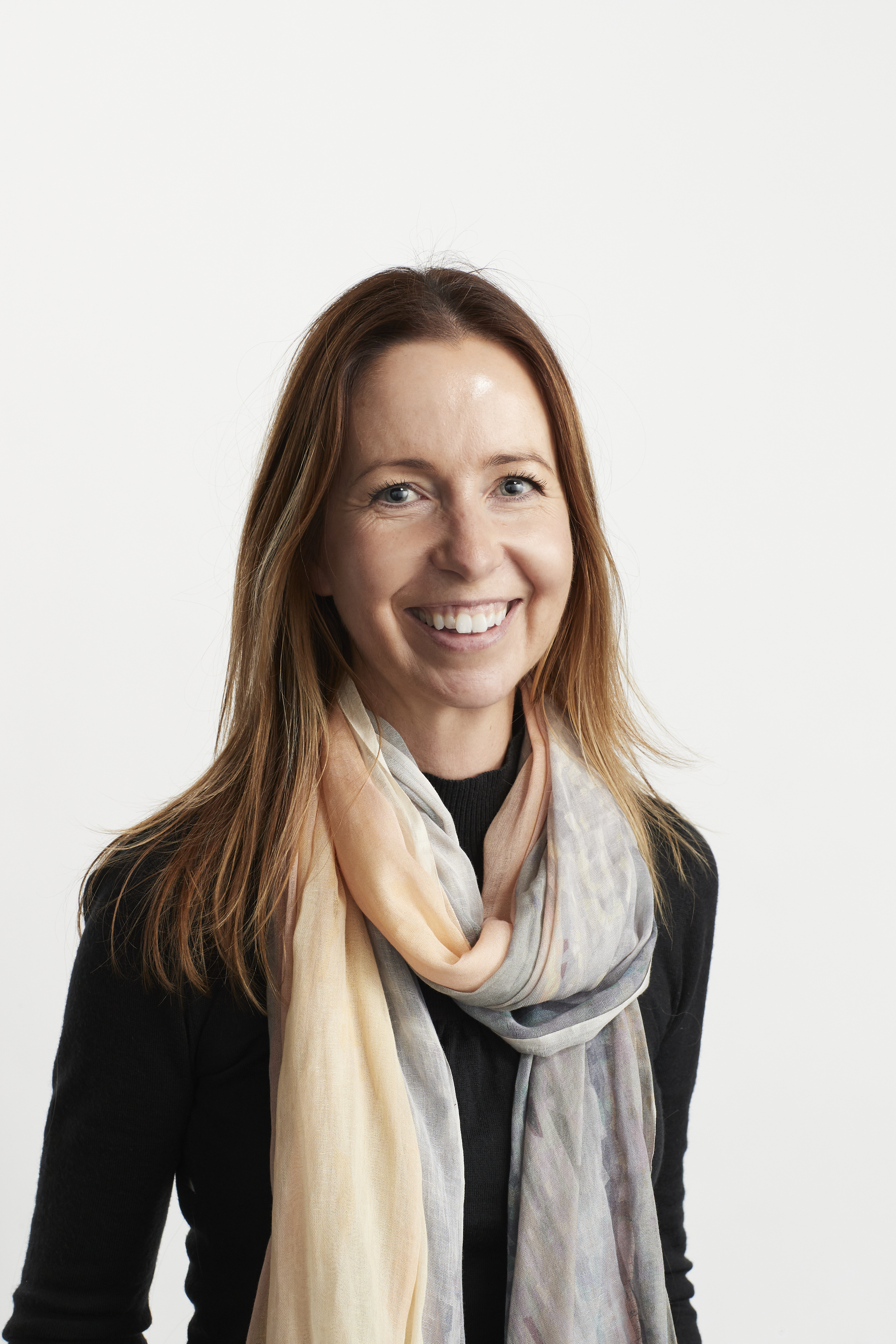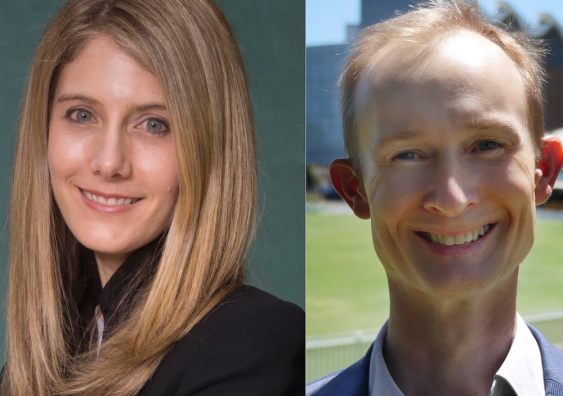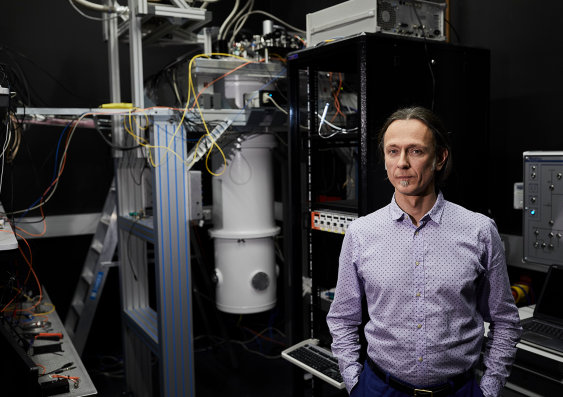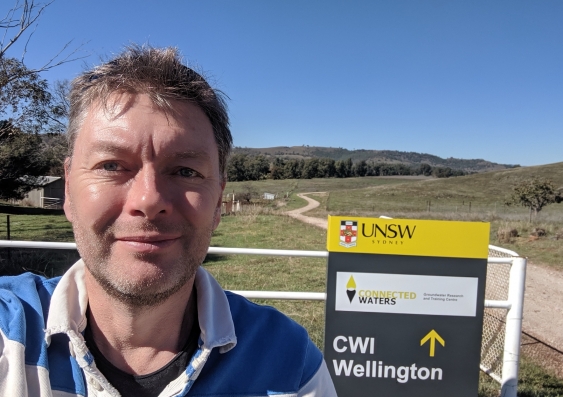UNSW researchers recognised with Australian Laureate Fellowships
30 May 2024
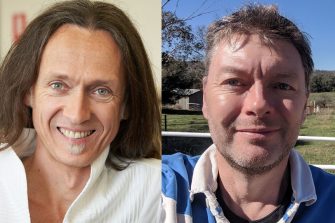
Scientia Professor Andrea Morello (left) from UNSW Engineering and Professor Andy Baker from UNSW Science.
Photo: UNSW Sydney
Andrea Morello has been awarded $3.3m and Andy Baker $3m to conduct ground-breaking research as part of the ARC’s 2024 Australian Laureate Fellowship scheme.
UNSW researchers have received two of 17 highly coveted Australian Laureate Fellowships from the Australian Research Council (ARC) in the latest round of funding.
Australian Laureate Fellowships are awarded to senior researchers who can provide a supportive research environment for early-career researchers and conduct research for the benefit of national and international communities.
Scientia Professor Andrea Morello from UNSW’s School of Electrical Engineering and Telecommunications has been awarded $3.38 million for his project that aims to develop a quantum computer platform where information is robustly and densely encoded within large atoms inside a silicon chip.
Professor Andy Baker from UNSW’s School of Biological, Earth & Environmental Sciences (BEES) has been awarded $3 million for his project that aims to combine the analysis of cave stalagmites, underground hydrological monitoring and climate hydrological modelling to better understand groundwater replenishment.
A new platform for a quantum computer
Prof. Morello’s project seeks to establish a new platform for the hardware of a quantum computer. A useful quantum computer must operate with near-zero errors, but quantum objects are inherently fragile and subjected to disturbances from their environment. A worldwide race is on to engineer quantum hardware large enough to provide information redundancy, so that errors can be corrected and detected as they occur.
The breakthrough idea in Prof. Morello’s project is to find redundancy within a single atomic nucleus, instead of piecing together many separate quantum bits. This method will provide an unprecedented density of information – up to 25 million error-resilient quantum bits per square millimetre.
This quantum computing hardware will be suited for the design and simulations of new medicines and new materials, the discovery of catalysts to improve the efficiency of chemical reactions, plus a vast range of problems in data security and optimisation.
“Scaling up this hardware to millions of quantum bits will permit the execution of complex calculations which escape the reach of even the most powerful current supercomputers,” Prof. Morello said.
“This exciting Laureate Fellowship project would not even be conceivable without the decade-long success in basic research that my team of students and postdocs has accomplished. The support of the ARC, both through the Centre for Quantum Computation & Communication Technology and through high-risk Discovery Projects, has been instrumental in taking us to this point. I also want to thank UNSW for creating a fertile environment for this research to thrive.”
Acting Deputy Vice-Chancellor Research & Enterprise (DVCR&E) Professor Merlin Crossley congratulated Prof. Morello on the Fellowship.
“This project has the potential to give Australian businesses a technological advantage over their competitors. Prof. Morello's work will help establish Australia as a leader in quantum computing and build strategic partnerships with other countries in this field,” Prof. Crossley said.
Research to guide sustainable groundwater use
Prof. Baker is working to create new knowledge by combining the study of cave stalagmites, underground water monitoring, and climate modelling.
“Limestone caves are unique environments,” Prof. Baker said.
“This Fellowship will use the fact that they are observatories of water movement from the surface to the groundwater. If you have ever visited a tourist cave you can see the water dripping from the ceiling – this water movement is groundwater replenishment in action.
“Caves have existed for millennia, so their stalagmites preserve records of past groundwater replenishment. Caves therefore hold essential information on the replenishment of groundwater, and the focus of this Fellowship is to investigate this – in terms what’s happening now as well as in the past, to inform groundwater replenishment in the future.”
The project will share its findings through conferences, workshops and a white paper aimed at water policymakers and industries that rely on groundwater, such as forestry, wine production, tourism and water supply.
Prof. Crossley also congratulated Prof. Baker on his grant success.
“This project will be the first-time caves and stalagmites are used to understand the effects of climate events like El Niño, La Niña and the Indian Ocean Dipole on groundwater replenishment. Prof. Baker’s research will guide sustainable groundwater use and help mitigate the impacts of prolonged droughts caused by climate change,” he said.
Media enquiries
For enquiries about this story and interview requests, please contact Yolande Hutchinson.
Tel: 0420 845 023
Email: y.hutchinson@unsw.edu.au


